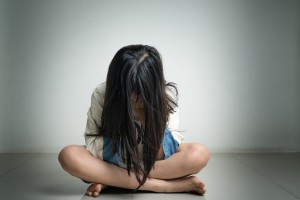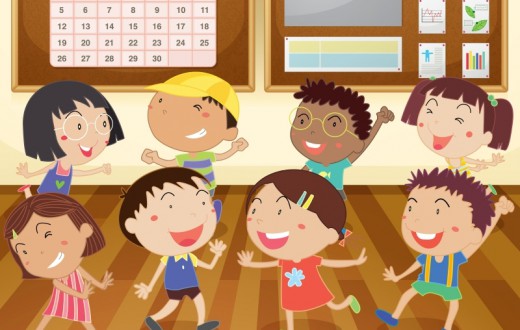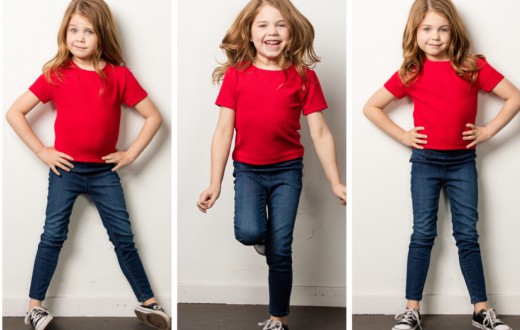Child actors, who often work long hours on set and maintain grueling schedules, are paying a heavy price for their success in the entertainment industry. While the bright lights of Hollywood may seem glamorous, the reality is far from it for young actors who are often pulled away from their normal childhood activities and education.
Long hours and intense schedules can lead to physical and emotional exhaustion for child actors, who are still in the process of developing both mentally and physically. This can result in disrupted sleep patterns, decreased focus and concentration and even burnout.
The constant demands of the industry can cause child actors to miss important events, such as school activities and family gatherings, as well as impede their ability to keep up with their education. Many young actors are home schooled or attend classes on set, but this may not always the most effective way for them to learn and grow.
The pressure to perform can be overwhelming; they’re expected to deliver their lines flawlessly and hit their marks while dealing with the stress of the job. The constant criticism and rejection can lead to low self-esteem, anxiety and depression.
Child labor laws and industry guidelines are in place to protect child actors, but many argue that these regulations are not always followed or enforced. As a result, it falls upon parents and caregivers to monitor the working conditions and ensure that their children are receiving the support they need.
See the Child Entertainment Laws.
The impact of long hours and intense schedules on child actors is a critical issue that deserves attention. The entertainment industry must do its part to support and protect young actors as they navigate the challenges of stardom.
But is there currently enough professional support for young actors? Share your thoughts by following us at DirectSubmit / NYCastings and leaving a comment.
Home Schooled, School on Set
Going back to the home / set schooled topic — I know I’m just plopping this down in the middle of the article, but I find it important to discuss…
I’m on the fence about kids who are schooled 100% on set or at home. On one hand, I like how they get devoted attention when it comes to learning, but on the other hand, I feel as if they’re missing out on the social aspect of going to a “regular” school, where they can sit with their friends at lunch, or stay after school for activities with other students.
Sometimes on set, there aren’t any other children so the child actor is missing out on conversing with their peers.
However…!
Studies have shown that home-schooled children can benefit from attending acting classes to help them develop social skills. Taking an acting class will give these kids the opportunity to work on how to interact with others in a group setting, as well as explore different character dynamics. They’ll also gain confidence in their own abilities by performing for an audience. Acting classes offer valuable lessons in self-expression, teamwork, communication and creativity which can help supplement any potential lack of interaction at school.
So you see the conundrum I’m in when discussing the school topic?
Mental health is an important consideration for children. From a young age, these performers are exposed to difficult environments and working conditions that can take a toll on their well-being.
Parents play an important role in ensuring their kids’ safety and stability. It’s crucial that parents monitor their children’s moods and behaviors closely, paying special attention to signs of changes in attitude or performance that may indicate emotional distress or distress related to work demands. Parents should also look for any signs of self-harm or poor coping (yes, I used the word “coping”) strategies that could be indicative of deeper underlying issues such as depression or anxiety.
Child actors usually have a unique relationship with their parents. Many child actors learn very quickly how to manipulate their parents due to their ability to act. Because of this, they can often get away with behaviors that other children are unable to do. This can be a problem if the child actor’s parents don’t understand the power of manipulation and aren’t able to set boundaries.
For example, when a child actor requests something from their parent, they often use an “I really need it” line which is an effective manipulation tool that puts the parent in an awkward position. The parent usually wants what’s best for the child, so they might agree even though what is being requested may not be in the best interest of the family. Been there, done that, but now I realize my mistakes.
Let’s take this a step further. If a child doesn’t want their parents to know something, chances are the child will be successful due to their acting skills, as mentioned above. This, to me, is super dangerous territory, because the child may be having mental health issues, but won’t discuss them. This may be because the child doesn’t want to disappoint their parents or they feel that their parents won’t understand.
If your child’s behavior has changed dramatically and you suspect that they may be experiencing depression, look for common symptoms such as a lack of interest in activities, feelings of worthlessness or guilt, physical aches and pains, mood swings and having difficulty concentrating – perhaps their schoolwork is suffering Other signs include sleeping too much or too little and changes in appetite — eating more or less than usual.
The world today is still overwhelmed from Covid-19, so finding your child someone to talk to (whether it’s a therapist, psychiatrist, psychologist, clinician) may prove a difficult task, so if you suspect any of the above, take action immediately. Emergency Rooms may have a Crisis Unit if you’re unable to find immediate help.
Some of the child stars who have gone through mental health struggles are: Drew Barrymore, Mara Wilson, Macaulay Culkin, Lindsay Lohan, Britney Spears, Amanda Bynes, Demi Lovato and Elliot Page.
The mental health of child actors is a serious issue, that, in my opinion, needs greater attention. Many children in the entertainment industry suffer from stress and psychological distress as a result of their work environment. It’s essential that these problems are identified and addressed so that young talent has a safe and healthy space to thrive. Parents must be aware of any signs of mental health issues in their own children and consider the professional help they need if necessary.








